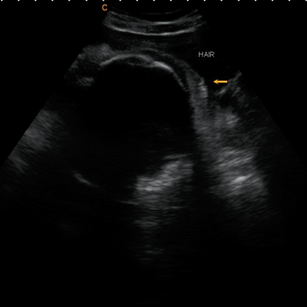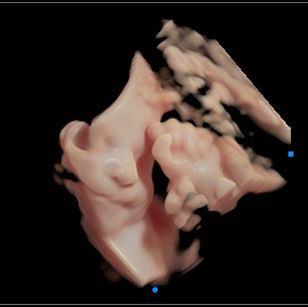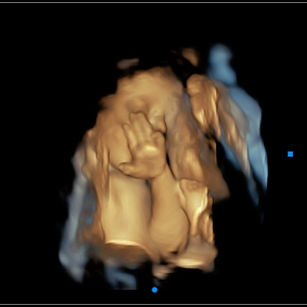32 Weeks Pregnant
At 32 weeks pregnant, your baby is well into the third trimester and making big strides in growth and maturity. They’re starting to look more like a full-term newborn, but still need more time for their brain, lungs, and fat stores to fully develop.
Baby’s Growth & Size
-
Weight: About 3.5-4 pounds (1.6-1.8 kg), the size of a Napa Vegetable!
-
Length: Around 16.5-17 inches (42-43 cm) from head to heel.
-
Baby is gaining about ½ pound (225 g) per week and putting on fat to regulate body temperature after birth.
Development & Features
-
Brain: Growing rapidly- the surface is developing more grooves and folds, allowing for greater brain tissue expansion.
-
Lungs: Continuing to mature and produce surfactant, which helps air sacs inflate after birth. Still not fully ready, but getting close.
-
Bones: Fully formed but soft and flexible; skull bones remain unfused for easier passage through the birth canal.
-
Muscles: Getting stronger, and movements may feel more forceful.
-
Skin: Less wrinkled as fat builds up, giving baby a rounder appearance.
-
Senses: Baby can track light, hear voices, and may even respond to sound with movement.
Movements
-
Space in the womb is getting tighter, but your baby is still very active. You’ll notice more rolling, stretching, and shifting than sharp kicks.
-
Regular activity is important- kick counts help reassure you that baby is doing well.
Vernix & Lanugo
-
Vernix caseosa (the creamy coating) continues to thicken, protecting baby’s skin.
-
Lanugo (fine body hair) is starting to shed, though some may remain at birth.
Position
-
Many babies begin moving into a head-down position around this time, though some may still be breech or sideways.
Immune System
-
Antibodies are being passed from you to your baby through the placenta, helping build immunity for life outside the womb.
Key Point: At 32 weeks, your baby looks more like a newborn every day but still needs the next several weeks to finish maturing- especially the lungs and brain. Babies born now usually do very well, though they may need short-term medical support.
























